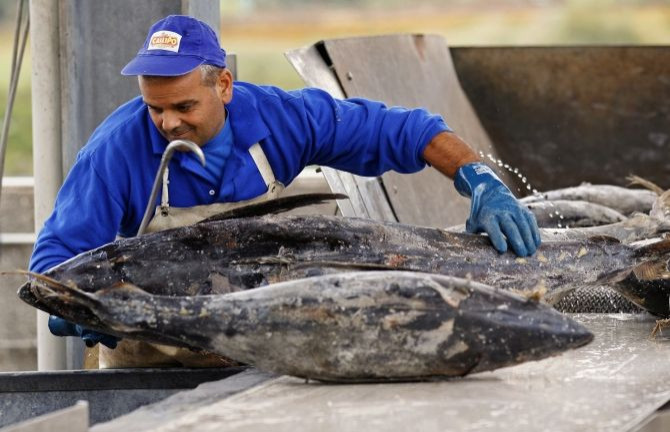Traces of Radioactive Substances Found in Tuna off California

Pacific Bluefin Tuna caught off Southern California coast was found to be carrying low levels of radioactive substances, says a new study.
Tissue samples from 15 tuna captured off the San Diego coast contained traces of cesium 134 and cesium 137. The level of these radioactive substances was higher than previous catches but researchers say that the level is still below safe limits.
"I wouldn't tell anyone what's safe to eat or what's not safe to eat "It's become clear that some people feel that any amount of radioactivity, in their minds, is bad and they'd like to avoid it. But compared to what's there naturally ... and what's established as safety limits, it's not a large amount at all," Daniel Madigan of Stanford University's Hopkins Marine Station and lead author of the study told in an interview to Reuters.
Japanese consume 80 percent of the world's Pacific and Atlantic bluefin tuna, NYDaily reports.
Researchers have said that they will repeat the study this summer to see how the tuna are being affected by radioactivity. The Research team hopes to collect samples of tuna that have been swimming in the waters off Fukushima Daiichi for a long time.
The levels of radioactive substances in the fish aren't the cause for panic. The fact that these fish didn't metabolize the substance has intrigued experts.
"That's a big ocean. To swim across it and still retain these radionuclides is pretty amazing," Nicholas Fisher, co- author of the study said to Daily Mail.
Pacific Bluefin tuna is an expensive treat in japan, a thin slice of which can cost up to $24 per piece at Tokyo restaurants.
Published by Medicaldaily.com



























